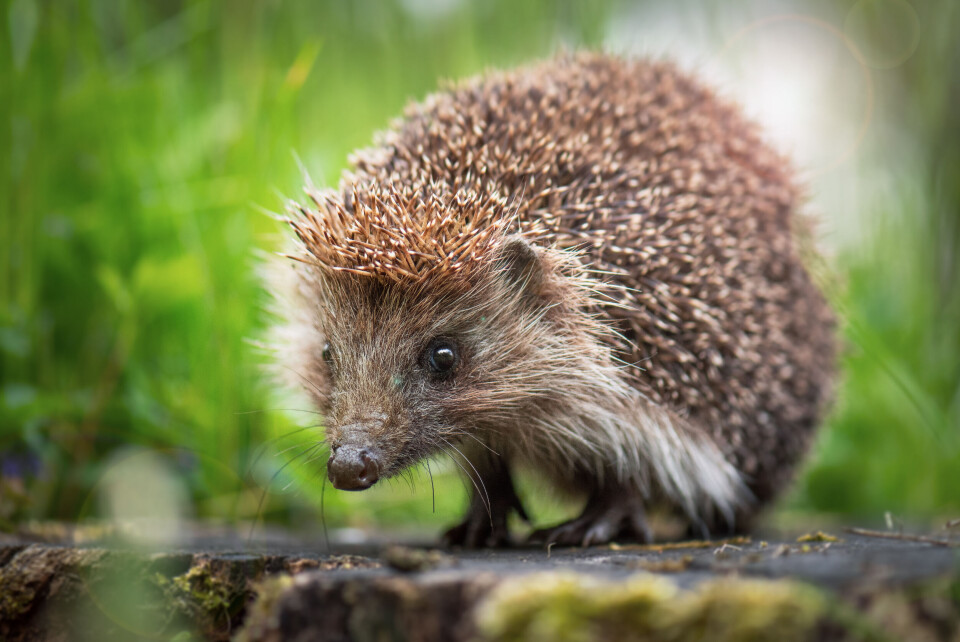-
Errors to avoid and how to help wildlife as you get your garden in France ready for spring
Gardening with care can make a big difference at this time of year
-
Map shows communes least, and most, exposed to pesticides in France
Environmental groups are calling for users to write to the health ministry to call for less pesticide exposure and more access to organic food
-
Plastic in bottled water: these brands identified in France as least affected
A new consumer study claims four popular brands offer the safest water to drink
Why are death rates rising among hedgehogs in France?
A variety of strange symptoms have been reported in the small mammals including respiratory problems, genetic defects and weakened immune systems

Hedgehogs are dying in higher numbers every year in Normandy, a new five-year study has found, prompting the authors to question what could be causing such a ’catastrophe’.
The study, run by the Centre d’hébergement et d’étude sur la nature et l’environnement (CHENE), analysed scientific data from 2015-2020 taken from three veterinary schools.
As well as a significant rise in admissions of wild hedgehogs being brought in for treatment, the numbers of hedgehogs dying have increased year-on-year.
A vet from CHENE, Laure Prevost, told France 3: “Since 2015, the curve has been rising. Last year 440 hedgehogs [died in a veterinary clinic] and this year was a catastrophe; 640 hedgehogs.”
“At this rate we will reach more than 700 in 2022.”
Ms Prevost said the small mammals were often brought in for care in worrying states that were hard to diagnose. Often, they were dehydrated, anaemic or with weakened immune systems. “Some are coughing, others have diarrhoea, others have many parasites. It’s hard to treat them because we don’t know what is wrong,” she said.
CHENE centre manager, Alain Beaufils, told Actu that among 180 hedgehogs that were studied, some had “respiratory problems, genetic defects, and signs of general weakness”.
He said: “Very often multiple organs were affected. Is that linked to a weakened immune system and, if so, how do we explain it?”
Pesticides, parasites and human activity
The findings reflect other studies that have found that hedgehog populations are declining in France, for various reasons.
Expert Philippe Jourde, who has studied the animal extensively, told FranceInfo that populations have fallen by 70% in 20 years “due to agricultural pesticides and the transformation of the natural habitat”.
In addition, President for the Société française pour l’étude et la protection des mammifères, Christian-Philippe Arthur, told Le Monde in 2017 that an average of 1.8 million hedgehogs die each year on roads in France. He said: “The mortality rate is three times higher than it was five years ago.”
Climate change could also be an issue, as the CHENE study found that more hedgehogs were being born in autumn as temperatures get warmer. This does not give them time to develop before colder winter temperatures arrive.
“They are still too small and not healthy,” Ms Prévost said. “We have to keep them under surveillance throughout winter which doesn’t do them any favours, because the stress means they could develop deadly illnesses.”
CHENE is also investigating instances of parasites, including the rare hedgehog worm, Brachylaemus erinaceus, as well as whether exposure to specific pesticides, heavy metals or plant protection products could provoke such symptoms in hedgehogs.
In the meantime, hedgehog protection group Mission Hérisson advised the following for people who find unwell hedgehogs in the wild:
-
In most cases, hedgehogs should be left alone. However, if one is clearly injured or in pain (for example, making noises of discomfort) call a wildlife sanctuary for advice.
-
Young hedgehogs have a much better chance of survival if they are raised by their parents. However, if you find a young hedgehog that is clearly injured or very weak (for example it cannot walk or curl up into a ball) it may need professional care. In this case, call a wildlife sanctuary for advice.
-
Quick access to care will be needed if the hedgehog is very young (meaning it is still pink-coloured and blind) and has been abandoned by its parents. In this case, call a wildlife sanctuary for advice.
-
If the wildlife sanctuary asks you to bring the hedgehog in for care, prepare a cardboard box with newspaper, and clean, warm fabric. Pick the hedgehog up using gloves or a folded towel and place it gently inside. Do not give the hedgehog food or water, as this could worsen its condition.
Related articles
Autumn in France: How to help hedgehogs as winter approaches
























